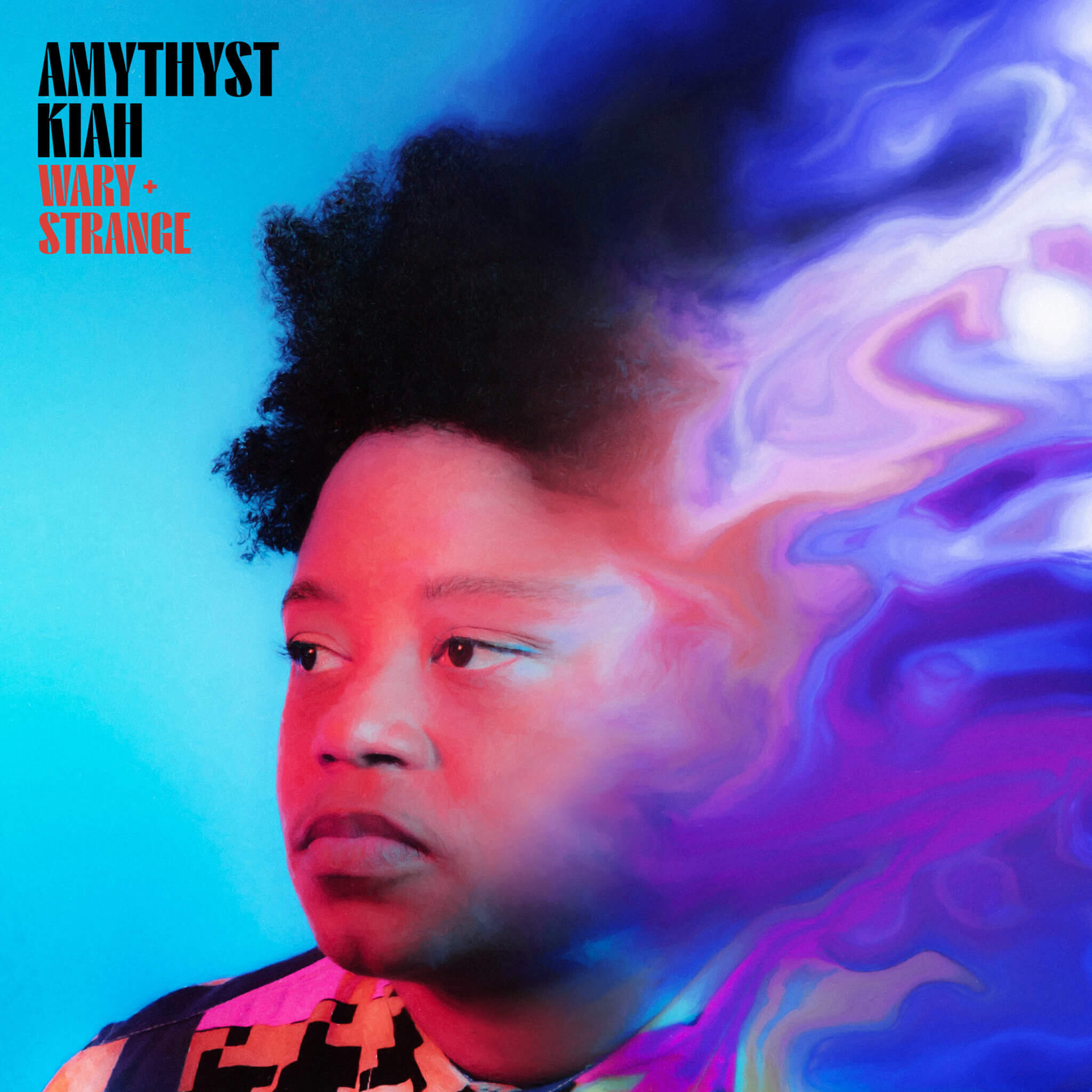Keepsake of the Week: “Wary + Strange” by Amythyst Kiah
“Wary + Strange” is the third album from rock and blues singer/songwriter Amythyst Kiah and is this week’s #KOTW.
In this semi-weekly blog series, we post our favorite new or re-discovered releases in independent music, our Keepsake of the Week, or #KOTW.
First comes the guitar, then a distant vocal, then the voice of Amythyst Kiah—known for its grit, power, and controlled rawness—flying in at half-mast. After her wild year of success as part of the supergroup of Black traditional music Our Native Daughters (alongside founding member Rhiannon Giddens), Kiah begins and ends her new solo record dethroning those who speak on a soapbox. “I don’t need what you think,” she sings with quiet confidence, all before bursting out of whatever shell you thought she may have with the Grammy-nominated rock anthem “Black Myself.” The record’s initial tone, spiritual and haunted, evokes a sense of wariness, and stories of being othered while raised Black and queer in the small Tennessee town of Chattanooga paint a picture of what it means to feel strange. But before you think too much about how this record makes you feel, remember Kiah’s bookended message: this isn’t about you.
“Wary + Strange,” from Rounder Records and produced by Tony Berg (of Phoebe Bridgers fame), is all about Kiah. It is the culmination of her alternative rock roots and the banjo-filled bluegrass she studied at school and played with Our Native Daughters. It is a showcase of string instrumentation and a thesis of vocal range and control. It is explorative and vulnerable, most notably when Kiah calls back to her late mother.
The gorgeous, effervescent cover art shows Kiah’s face fading into watercolors, and water runs deep throughout the album. Kiah’s mother passed away by suicidal drowning in the Tennessee River when Kiah was a teenager, but her spirit is alive in this record. She and the water are in “Opaque,” one of the most rhythmic tracks on the album in which Kiah roars, “And just like that / She washed away / Stood there choking in the rain / She shook her head and backed away / She’d rather die than reach out for my hand.” She is the ghost of Kiah’s struggle with alcoholism in “Hangover Blues,” and her choking in the rain is illustrated once again in “Wild Turkey,” perhaps the album’s standout.
No doubt referring to the brand of bourbon, “Wild Turkey” may also refer to the myth that wild turkeys will fall so deeply asleep with their heads back and mouths open in the rain that they drown. The song is not only a strong metaphor, but also exhibits Kiah at her most vulnerable and uses some impressive production effects. The vocals here sound submerged as Kiah asks “Oh Lord / Will I ever feel?” until Kiah breaks free of the water. Drums are the perfect tool to elevate a soft song into an anthem, and that is exactly what happens when they come in here, lifting Kiah out of the deep despair until she ends with that confident whisper that has become her signature and changes the chorus to “Oh Lord / Will I ever feel right again?”
Kiah has spoken openly about how intimate music and performance are for her. She rarely collaborated or even performed with a band prior to Our Native Daughters. It must have been a comforting catharsis to work with women whose music and stories aligned with Kiah, and the tools she was given in the quartet have been used again here. “Black Myself” is just as powerful with Kiah alone, the banjo returns in “Firewater,” and Kiah works with wildly talented and experienced instrumentalists throughout the record. A slide guitar that sounds as country as the Opry opens “Ballad of Lost,” the longest and most dynamically consistent track, and the music never loses your attention. Kiah’s vocals are as strong as Linda Ronstadt here, and her lyrics are affirmative: “I am lost / Maybe I have always been / I believe that I can forgive / But can I forget? / Never.”
The record moves smoothly from rapids to stillness, mirthful to melancholy. As Kiah sings in one of my favorite tracks, “Melancholy always seemed to work for me.” The line is from another standout, “Firewater,” which Kiah wrote and began performing years before this album became a reality. The string quartet is the water to the banjo’s fire, with lyrics that really couldn’t be stronger. The story told in this song is the story of the whole album, with themes of water and sleep expressed through the album name: ”Melancholy always seemed to work for me / Wistful and uncertain are my dreams / Stardust forms shapes that never leave / Strange and wary they all seem.” The chorus brings back that confidence and tiredness once more with Kiah almost begging, “Can you just leave me be? / Being drenched in firewater won’t save me / I’ll forsake the path of filth and fleas / Can you just leave me be?”
Finally, the album ends with a reprise of “Soapbox,” a literal bookend and a remix that brings the drums where they were not in the first version, but it’s a tease. The drums fade back into the string quartet, closing with a single cello and that assertive line again: “I don’t need what you think.” This is a formative album for Kiah, and it is more than just rock or bluegrass. It is a tour de force in craft and confidence. I think it’s astounding, but it wouldn’t matter if I didn’t. Like most great music, this is about the musician. We are not here to think. We’re here to listen.
Stream “Wary + Strange” everywhere now.
Amythyst Kiah in Rolling Stone.


